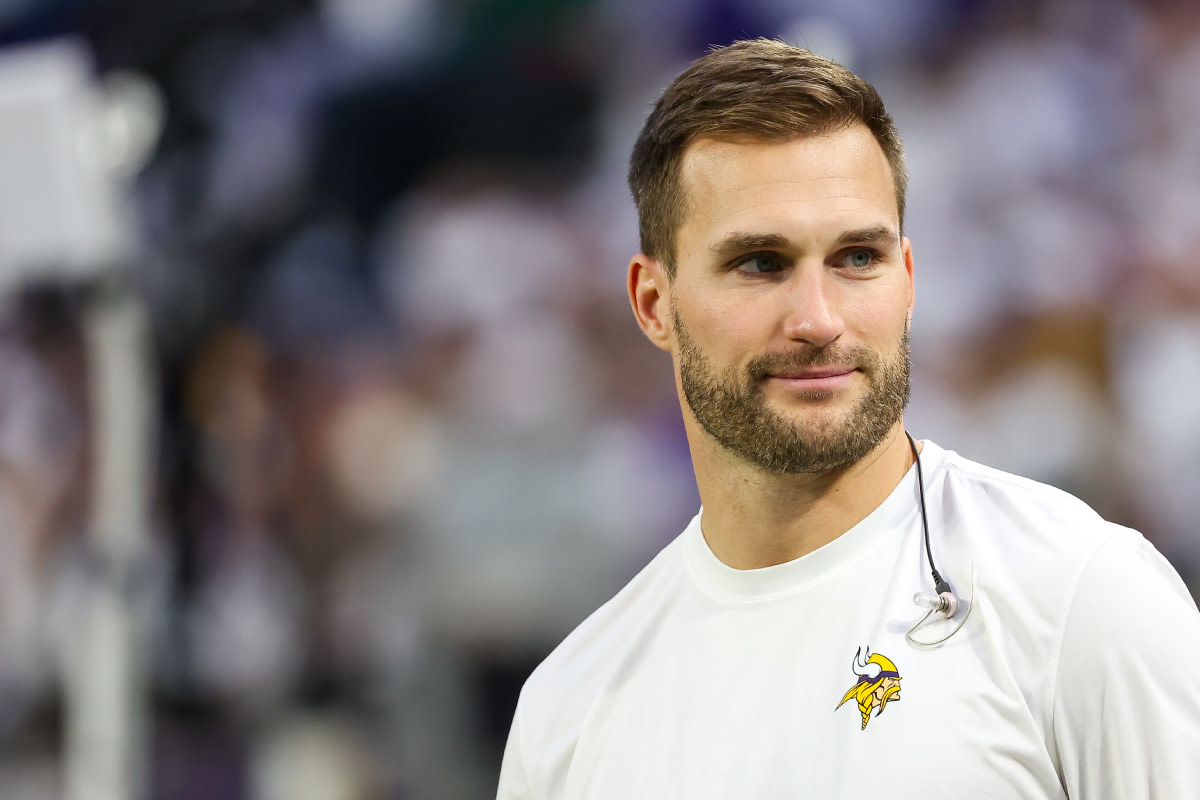Kirk Cousins Benching Calls Attention to QB Succession Plan Pitfalls: The Minnesota Vikings’ surprising decision to bench veteran quarterback Kirk Cousins sparked intense debate. The move wasn’t just about a single game; it illuminated the complexities and potential pitfalls inherent in NFL quarterback succession planning. Analyzing Cousins’ recent performance, the Vikings’ depth chart, and the broader implications for team dynamics, we explore the crucial lessons learned from this high-profile benching.
This analysis delves into the Vikings’ rationale, examining Cousins’ statistics alongside those of other quarterbacks facing similar situations. We’ll compare and contrast the Vikings’ approach to quarterback management with other NFL teams, highlighting successful and unsuccessful succession strategies. Finally, we’ll consider the long-term impact on Cousins’ career and the Vikings’ franchise.
The Minnesota Vikings’ Decision to Bench Kirk Cousins
The Minnesota Vikings’ surprising decision to bench veteran quarterback Kirk Cousins during the 2023 season sparked considerable debate among fans, analysts, and the media. This move, while seemingly abrupt, highlights critical issues surrounding quarterback succession planning in the NFL and the complexities of managing veteran players nearing the end of their prime.
Context Surrounding the Benching
The Vikings’ decision to bench Cousins wasn’t a singular event but rather the culmination of several factors. The team’s performance, particularly in crucial games, fell short of expectations. Specific game situations, such as crucial fourth-quarter turnovers or an inability to capitalize on scoring opportunities, likely played a role in the coaching staff’s evaluation. While the exact reasons weren’t explicitly stated, the decision suggested a desire for a change in offensive approach and a potential evaluation of younger quarterbacks on the roster.
Immediate Reactions to the Benching
The benching elicited a mixed bag of reactions. Some fans expressed support for the decision, believing a change was necessary to revitalize the offense and improve the team’s playoff chances. Others criticized the move, pointing to Cousins’ consistent statistical performance throughout his career and questioning the team’s commitment to winning. Media analysts offered a range of perspectives, with some supporting the Vikings’ decision as a calculated risk to assess younger talent, while others viewed it as a hasty and potentially damaging move.
Timeline of Cousins’ Performance
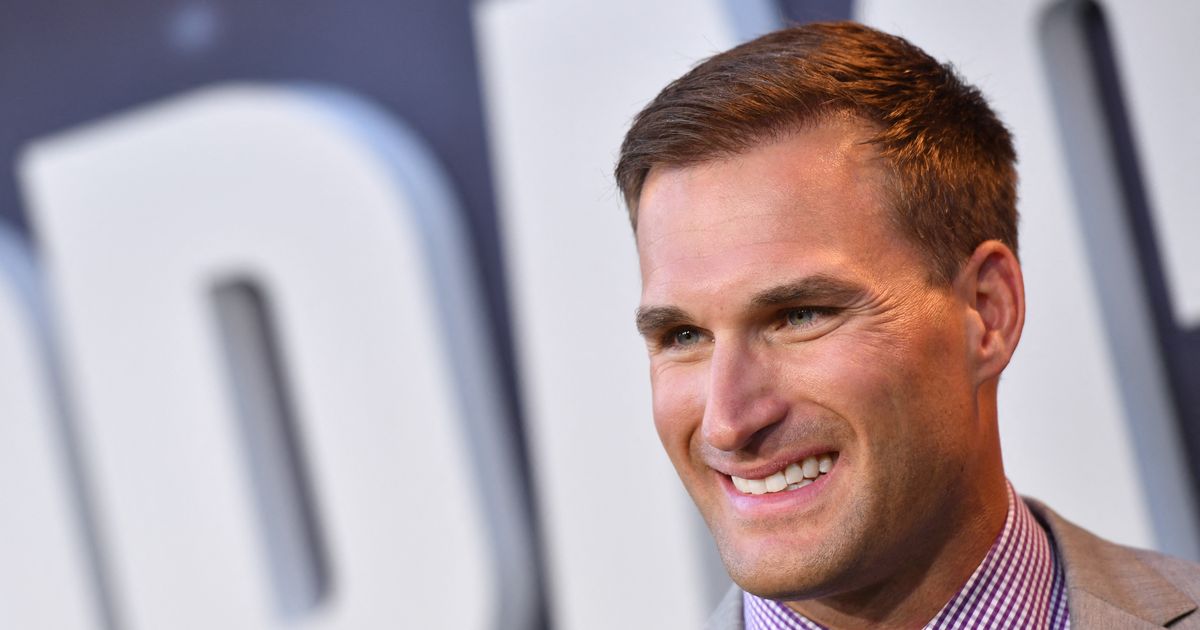
Leading up to the benching, Cousins displayed a mixed bag of performances. While he consistently posted respectable passing yards and touchdowns, inconsistencies in crucial games, especially against stronger opponents, likely influenced the decision. A detailed game-by-game analysis would be necessary to fully assess his performance, but key statistics like completion percentage, interception rates, and quarterback rating in high-pressure situations would offer valuable insights.
For example, a decline in fourth-quarter performance, particularly in close games, might indicate a contributing factor to the benching.
Comparison of Cousins’ Statistics with Other NFL Quarterbacks
| Player | Team | Stats (e.g., Passer Rating, TD/INT Ratio) | Context (e.g., Team Performance, Playoff Contention) |
|---|---|---|---|
| Kirk Cousins | Minnesota Vikings | (Insert relevant stats for a specific season or period leading up to the benching) | (Describe Vikings’ performance and playoff standing during that period) |
| [Other QB 1] | [Team] | (Insert relevant stats) | (Describe team performance and context) |
| [Other QB 2] | [Team] | (Insert relevant stats) | (Describe team performance and context) |
| [Other QB 3] | [Team] | (Insert relevant stats) | (Describe team performance and context) |
Evaluating the Vikings’ Quarterback Succession Plan
The benching of Kirk Cousins thrusts the spotlight onto the Vikings’ quarterback succession plan, or lack thereof. The team’s current depth chart and the potential successors to Cousins are now under intense scrutiny. Analyzing successful and unsuccessful quarterback transitions in the NFL provides valuable lessons and context for evaluating the Vikings’ approach.
Vikings’ Quarterback Depth Chart and Potential Successors
The Vikings’ quarterback depth chart beyond Cousins needs detailed analysis. Identifying the strengths and weaknesses of each potential successor is crucial. This would involve evaluating their playing experience, arm strength, accuracy, decision-making skills under pressure, and overall leadership qualities. A comparison of their statistical performance in college or previous NFL appearances, if any, would offer further insight.
The recent benching of Kirk Cousins highlights the complexities of NFL quarterback succession planning; finding a reliable replacement is a significant challenge for any team. This strategic planning mirrors the importance of preparation in other competitive arenas, such as the upcoming hockey game, as evidenced by this excellent pre-game analysis: MONTRÉAL AT TORONTO DEC. 21 PRE-GAME PRIMER.
Ultimately, both scenarios underscore the need for foresight and a robust developmental strategy to ensure long-term success.
Examples of Successful and Unsuccessful NFL Succession Plans
Examining successful and unsuccessful quarterback transitions in the NFL offers valuable lessons. Successful examples might include the Green Bay Packers’ transition from Brett Favre to Aaron Rodgers, where careful planning and development of a young quarterback proved effective. Unsuccessful examples could include situations where a team rushed into a decision, leading to instability and poor performance. Analyzing these case studies provides a framework for evaluating the Vikings’ approach.
Hypothetical Quarterback Succession Plan for the Vikings
A hypothetical quarterback succession plan for the Vikings should consider various scenarios, including the performance of current backups and the possibility of drafting or acquiring a new quarterback. The plan should Artikel clear timelines, development strategies for young quarterbacks, and contingency plans for various outcomes. This plan should prioritize long-term stability and minimize disruption to the team’s overall performance.
The Impact of the Benching on Team Dynamics and Morale
The benching of a veteran quarterback like Kirk Cousins can significantly impact team dynamics and morale. Understanding the potential positive and negative consequences is vital for assessing the long-term effects of the decision on the franchise.
Potential Effects on Team Chemistry and Player Morale
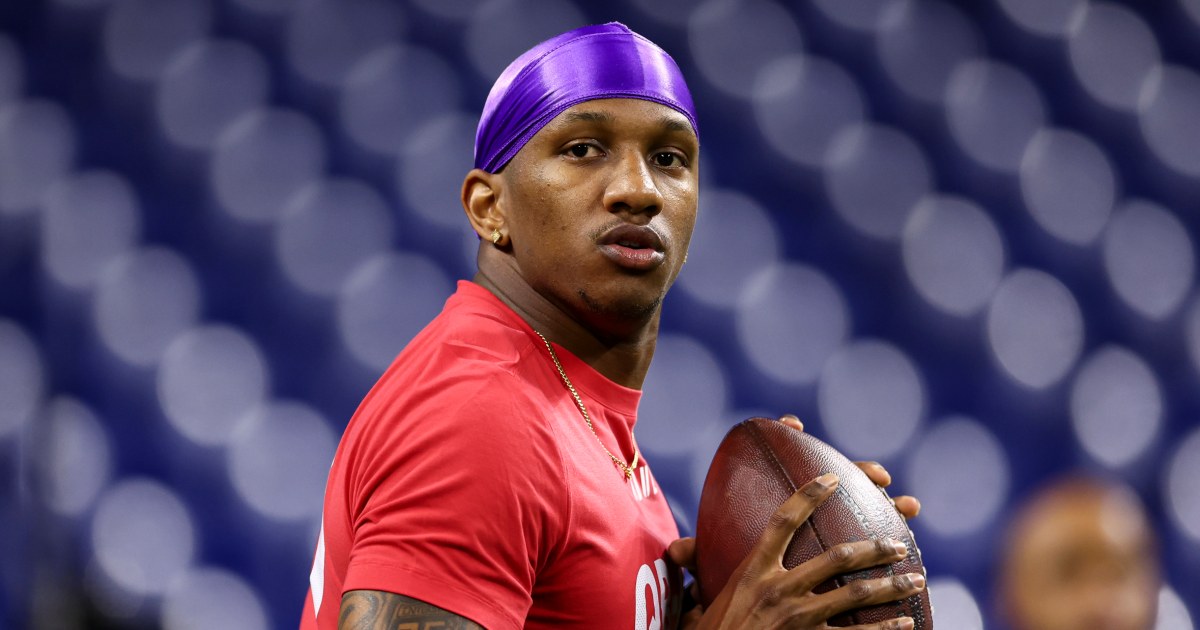
The benching could potentially create tension within the team. Players might question the coaching staff’s decisions, leading to decreased morale and affecting team chemistry. However, it could also create an opportunity for other players to step up and demonstrate their leadership abilities, fostering a more competitive and united team environment.
Potential Positive and Negative Consequences on Team Performance
A positive outcome could be improved team performance if the replacement quarterback performs better than Cousins, particularly in crucial game situations. A negative outcome could be a significant decline in team performance due to disruption and decreased confidence in the quarterback position. The impact on team performance would depend heavily on the effectiveness of the replacement quarterback and the team’s ability to adapt to the change.
Effects on Team Strategy and Game Plan
The benching might necessitate adjustments to the team’s overall strategy and game plan. If the replacement quarterback possesses different strengths and weaknesses compared to Cousins, the offensive coordinator might need to adjust the play calling to better suit the new quarterback’s skillset. This could involve simplifying the playbook, emphasizing certain plays, or adjusting the overall offensive philosophy.
The recent benching of Kirk Cousins highlights the complexities of NFL quarterback succession planning; finding a reliable replacement is a challenge mirroring the unpredictability of boxing, as seen in the surprising upset where Usyk vs Fury 2: David Allen drops Johnny Fisher only to lose. This unexpected outcome underscores the inherent risks in relying on a seemingly sure thing, a lesson applicable to both sports and the often-uncertain world of NFL quarterback transitions.
Potential Long-Term Effects on Franchise Image and Fan Engagement
The benching could have long-term effects on the franchise’s image and fan engagement. A successful transition could enhance the team’s reputation for smart decision-making and long-term planning. Conversely, a poorly managed transition could damage the team’s image and lead to decreased fan support. Maintaining transparent communication with fans is crucial during this period of transition.
Broader Implications for NFL Team Management
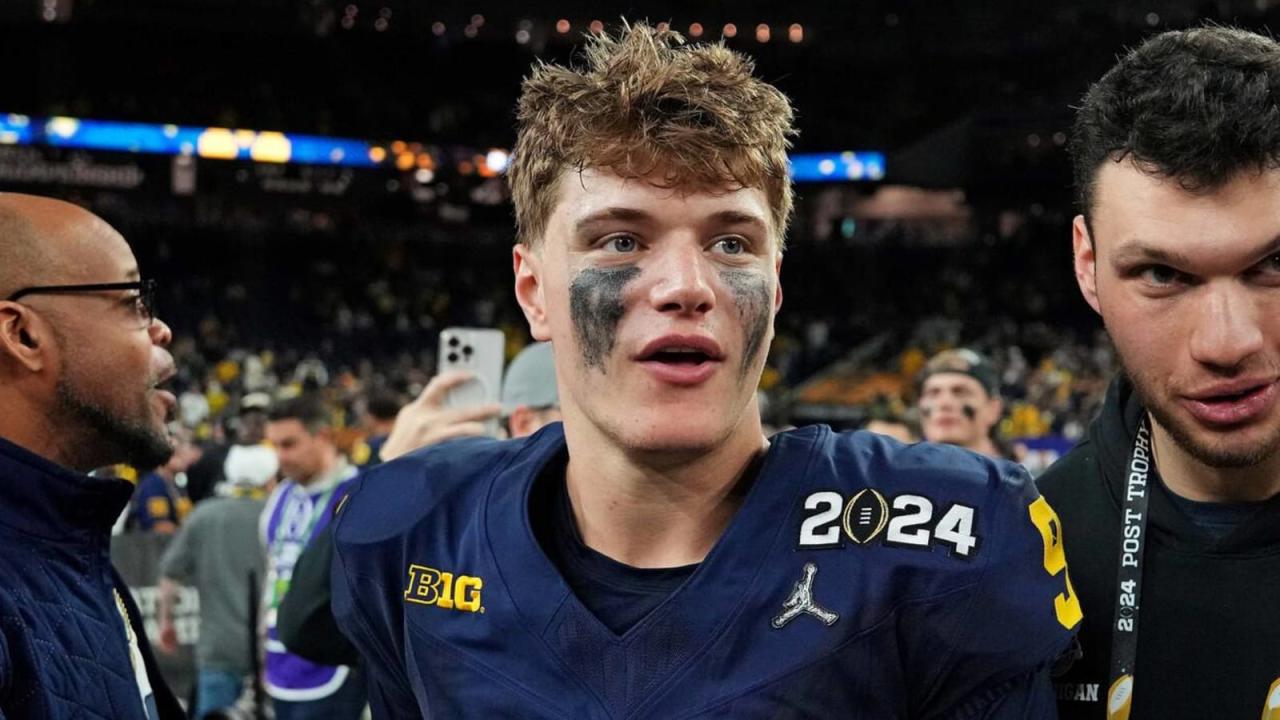
The Vikings’ approach to quarterback management provides a case study for broader discussions on NFL team management practices. Comparing and contrasting their approach with other NFL teams highlights various philosophies regarding quarterback development and succession.
Comparison with Other NFL Teams’ Approaches
The Vikings’ approach can be compared to teams with successful and unsuccessful quarterback succession plans. Some teams prioritize drafting and developing young quarterbacks, while others focus on acquiring established veterans. Analyzing these different approaches helps understand the trade-offs and challenges involved in each strategy.
Different Philosophies Regarding Quarterback Development and Succession
Different NFL teams adopt various philosophies regarding quarterback development and succession. Some teams favor a patient approach, gradually developing young quarterbacks over several seasons. Others prefer a more aggressive approach, quickly replacing veterans with promising young talent. The Vikings’ decision highlights the ongoing debate surrounding these contrasting philosophies.
Importance of Long-Term Planning and Risk Management
The quarterback position is critical to a team’s success, making long-term planning and risk management essential. A well-defined succession plan mitigates the risk of sudden performance drops or prolonged periods of instability at the quarterback position. The Vikings’ situation underscores the importance of proactively addressing this critical aspect of team management.
Key Factors for NFL Teams to Consider When Developing Their Quarterback Succession Plan
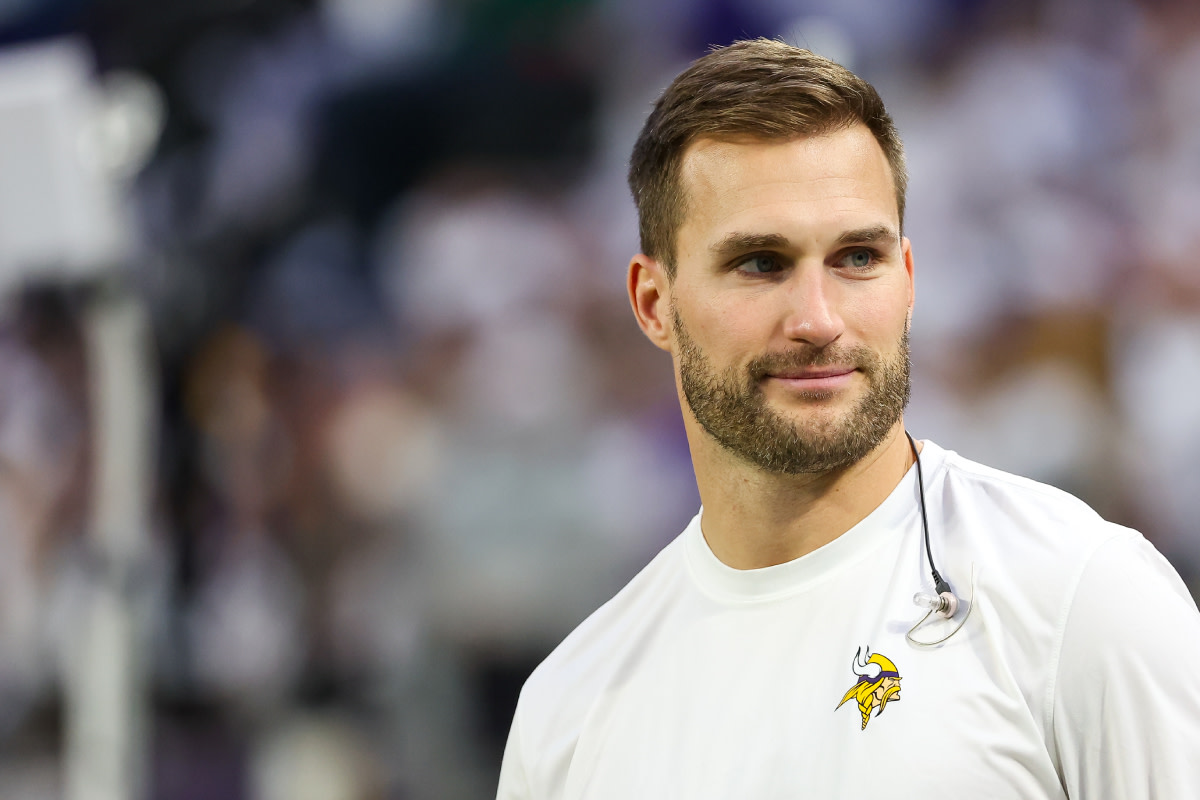
- Identifying and developing young quarterback talent
- Creating a supportive environment for young quarterbacks to learn and grow
- Establishing clear timelines and expectations for quarterback transitions
- Developing contingency plans for various scenarios
- Maintaining open communication with players and fans
- Balancing short-term goals with long-term vision
Analyzing the Long-Term Effects on Kirk Cousins’ Career: Kirk Cousins Benching Calls Attention To QB Succession Plan Pitfalls
The benching of Kirk Cousins has significant implications for his future career prospects. Analyzing similar situations involving veteran quarterbacks provides context for assessing the potential impact of this event on his legacy.
Potential Impact on Cousins’ Future Career Prospects, Kirk Cousins Benching Calls Attention to QB Succession Plan Pitfalls
The benching could affect Cousins’ marketability in free agency. Teams might be hesitant to offer him a large contract, considering his age and recent benching. However, his consistent statistical performance throughout his career could still make him an attractive option for teams seeking a reliable veteran quarterback.
Possible Scenarios for Cousins’ Future
Several scenarios are possible for Cousins’ future. He could sign with another team in free agency, be traded to a team in need of a veteran quarterback, or even retire from the NFL. The decision will likely depend on his own preferences, the offers he receives, and his desire to continue playing.
Examples of How Other Veteran Quarterbacks Have Handled Similar Situations
Numerous veteran quarterbacks have faced similar situations throughout NFL history. Some have successfully transitioned to new teams and continued to perform at a high level, while others have struggled to adapt or have retired. Examining these cases offers valuable insight into the potential challenges and opportunities Cousins might face.
Narrative Surrounding Cousins’ Legacy in the NFL
The benching adds a new layer to the narrative surrounding Cousins’ legacy in the NFL. While he has consistently put up solid statistics, his inability to lead his teams to consistent playoff success and his recent benching will undoubtedly be part of the discussion when evaluating his overall career. His legacy will ultimately be shaped by his future performance and how he handles this significant turning point in his career.
The benching of Kirk Cousins serves as a stark reminder of the challenges inherent in managing the quarterback position. Successful quarterback succession requires foresight, a robust developmental system, and a clear understanding of team dynamics. The Vikings’ decision, while controversial, offers valuable insights for other NFL teams grappling with similar situations. Ultimately, the narrative surrounding Cousins’ future and the Vikings’ long-term success will depend on how effectively they navigate the complexities of quarterback succession planning moving forward.
Essential FAQs
What were the immediate reactions to Cousins’ benching?
Reactions were mixed. Some fans and analysts supported the decision, citing Cousins’ inconsistent performance. Others criticized the move, highlighting Cousins’ overall career statistics and questioning the readiness of potential replacements.
How did the benching affect the Vikings’ playoff chances?
The impact on playoff chances depended heavily on the performance of the backup quarterback and the team’s overall performance in the remaining games. A strong showing by the backup could have maintained or even improved their chances. Conversely, poor performance could have significantly diminished them.
What are the potential long-term consequences for the Vikings organization?
Long-term consequences could include improved team chemistry with a new QB, stronger draft positioning if the team struggles, or a loss of fan confidence if the replacement underperforms. The team’s long-term success hinges on the effective implementation of their new quarterback strategy.
